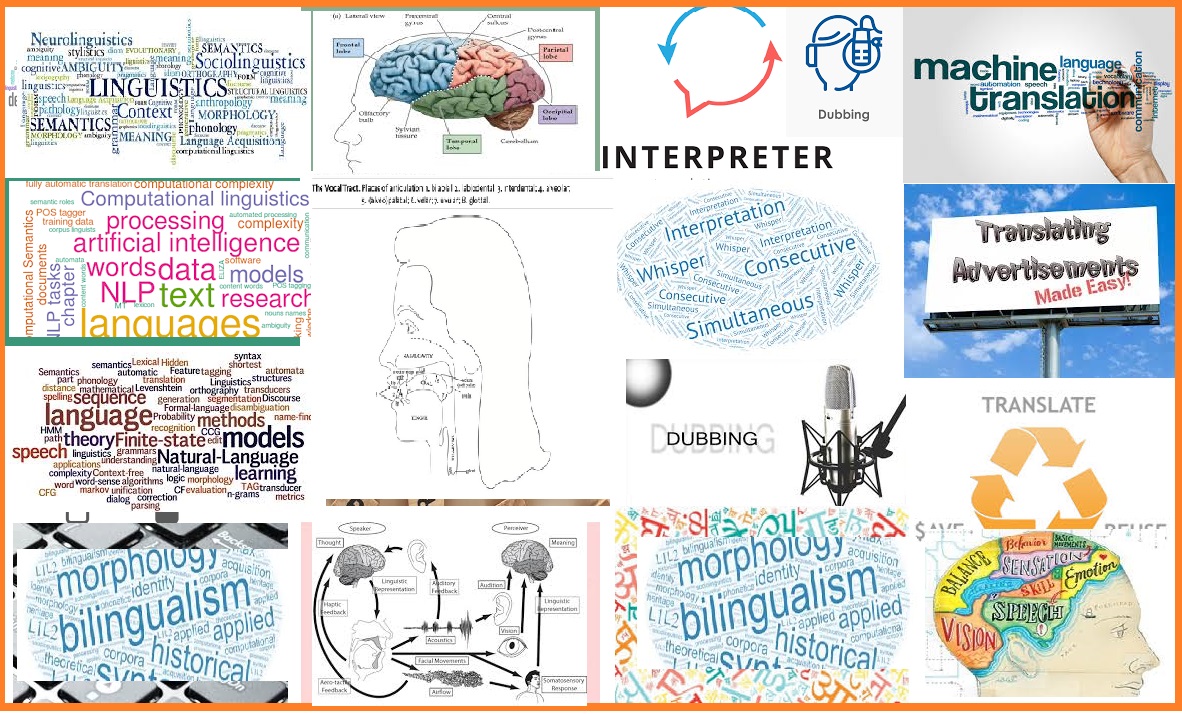General Overview:
In one sentence or in essence, we can say that the discipline, LINGUISTICS is the SCIENTIFIC study of language and a WINDOW into the HUMAN MIND, a holistic approach through systematic means towards the whole complex of Language and covers all those aspects which are concerned to a human being experimentally provable whether being Social, Cultural, Psychological, Behavioral, Educational, Pathological, Clinical, Biological, Ethnological, Geographical, Neurological, Philosophical, Spiritual, Technological (Language Engineering), Robotics, AI etc etc. Just to have glimpse of this whole complex system and the most interdisciplinary in nature here are few branches of Linguistic but not all of them have been mentioned here:
1. Phonetics/ Phonemics/ Phonology, 2. Morphology, 3. Syntax, 4. Semantics, 5. Sociolinguistics, 6. Morphophonology, 7. Psycholinguistics, 8. Neurolinguistics, 9. Biolinguistics, 10. Applied Linguistics, 11. Contrastive Linguistics, 12. Lexicology, 13. Lexicography, 14. Translation Theory, 15. Historical linguistics, 16. Etymology, 17. Areal Linguistics/ Geographical Linguistics, 18. Descriptive Linguistics, 19. Field Linguistics, 20. Typology, 21. Ethnolinguistics, 22. Pragmatics, 23. Semiotics, 24. Text Linguistics, 25. Discourse and Conversation Analysis, 26. Dialectology, 27. Stylistics, 28. Natural Language Processing (NLP)- Computational Linguistics, Corpus Linguistics, 29. Linguistic philosophy (Philosophy of language (not the same as linguistic philosophy but the bigger set), 30. Sign Linguistics (Sign Language)- Non-verbal Communication Theory (including kinesics, paralanguage, haptics, chronemics etc) and so on.
Holistic approach towards language is deep rooted in Indian Linguistic Thought of Centuries old well documented System; guided the modern Linguistics as well:
Vedaanga and Praatishakya Studies/traditions- 1) Shiksha (Phonetics/Phonology), 2) Vyaakarana (Grammar), 3) Nirukta (Lexicology/Lexicography, Semantics, Etymology, Morphology), 4) Chhanda (Metrics, Prosody, Syllabification, Supra-segmental Phonology) in addition to 5) Jyotisha (Astronomy and Astrology) and 6) Kalpa (rituals) just few to mention. Ferdinand de Saussure regarded as father of Linguistics had great insights from Indian Linguistic System, as he did his PhD on Sanskrit Genitive Case "shashthi sheshe" one of the sutras from Panini's Ashtadhyayi.
The attempt in this course is to touch upon above mentioned topics just as an over view, though each one of these can be a semester long course but here we are just trying to know them under the umbrella term known as LINGUISTICS as Introduction to Linguistics. Let's begin to understand this beautiful and exciting discipline by taking the most essential topics into consideration one by one. So crack JNUEE for LINM (214) and enjoy this course. Click HERE for more details for admission to MA in Linguistics (LINM 214).
- For more details on LE401L: Introduction to Linguistics listed among courses on Linguistics on JNU Website, please click HERE. It will be opened in a new window.

- Teacher: Gopal Ram
